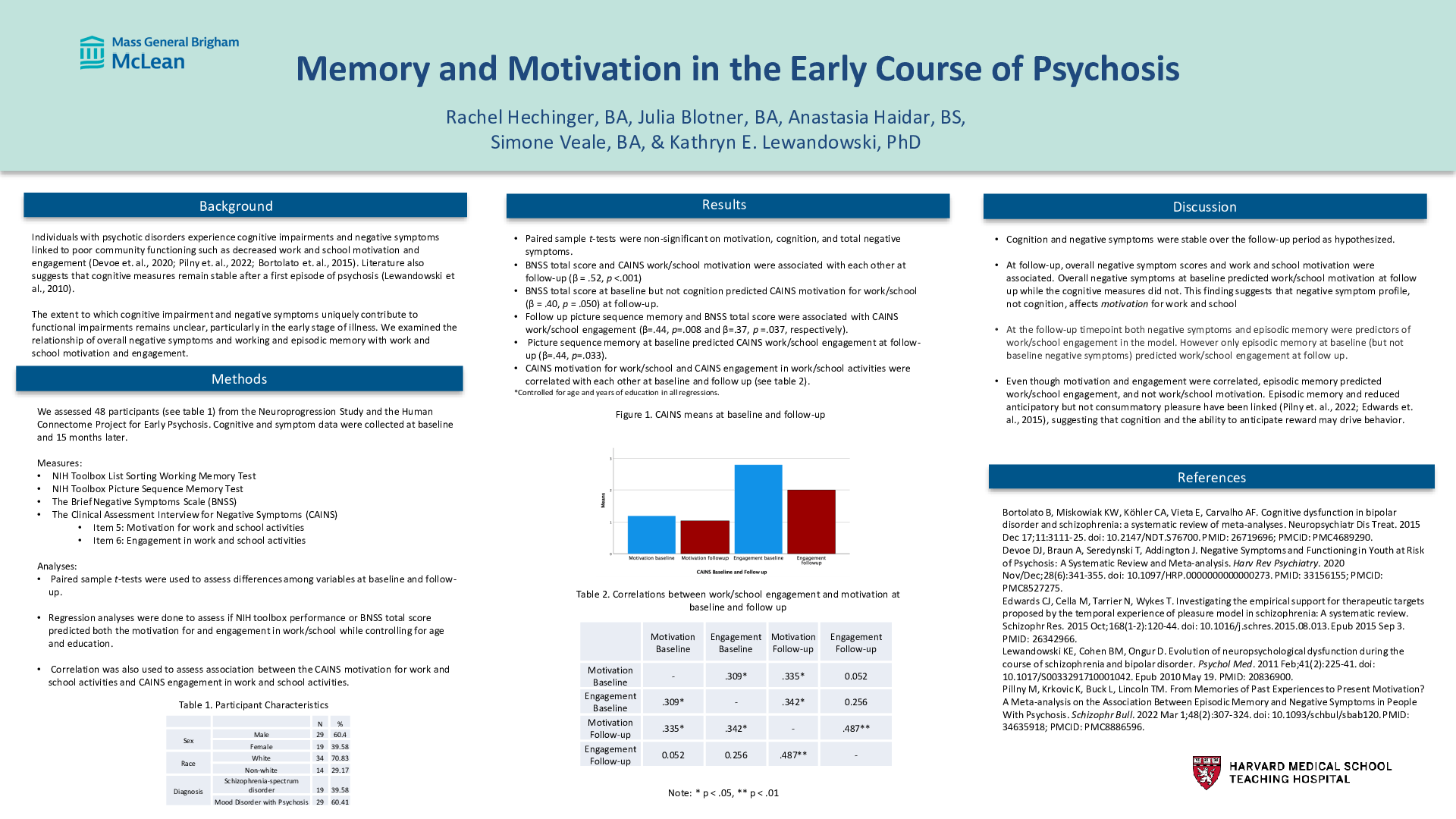Scientific Abstract
Background: Individuals with psychotic disorders experience cognitive impairments linked to negative symptoms and poor community functioning such as decreased work/school motivation and engagement. How much these factors contribute to decreased functioning is unclear, particularly early in illness. We examined the relationship of overall negative symptoms and working and episodic memory with work/school motivation and engagement.
Methods: We assessed 48 people with psychotic disorders within 6.5 years of onset at baseline and 15 months later. NIH Toolbox working and episodic memory items measured cognition. CAINS items measured motivation and engagement in work/school activities. BNSS assessed overall negative symptoms. Paired sample t-tests assessed changes over time. Correlations assessed associations between motivation and engagement. Linear regressions predicted work/school motivation and engagement by cognition and negative symptoms.
Results: Paired sample t-tests were non-significant, suggesting stability over the follow-up period. CAINS motivation for work/school and CAINS engagement in work/school activities were correlated with each other at baseline (r=.31, p=.039) and follow-up (r=.49, p<.001). Controlling for age and education, BNSS total score and CAINS work/school motivation were associated with each other at follow-up (p<.001) and BNSS total score at baseline but not cognition predicted CAINS motivation for work/school (p=.050) at follow-up. Controlling for age and education, follow-up picture sequence memory and BNSS total score were associated with follow-up CAINS engagement in work/school (p=.008 and p=.037 respectively) and the picture sequence memory at baseline predicted CAINS engagement in work/school (p=.033) at follow-up.
Conclusion: Negative symptoms and cognition were relatively stable over time, predicting work/school engagement. Only negative symptoms predicted work/school motivation. Our findings suggest that negative symptoms and memory may impact work/school motivation and engagement in work/school activities differently. Cognition was more strongly associated with actual daily activities and unrelated to self-reported motivation.
Search posters

